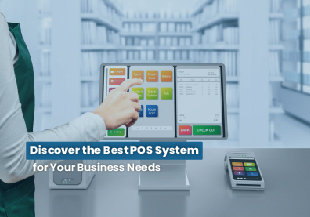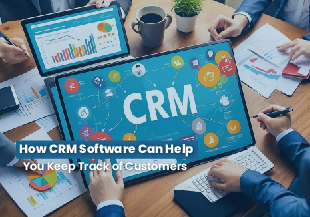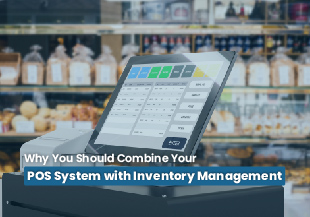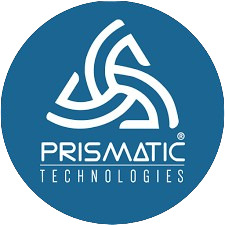ERP, or Enterprise Resource Planning, plays a significant role in Supply Chain Management (SCM) and Logistics.
ERP, or Enterprise Resource Planning, plays a significant role in Supply Chain Management (SCM) and Logistics. It refers to a comprehensive software system that integrates various business functions and processes within an organization into a single platform. ERP system in Pakistan is designed to streamline operations, improve efficiency, and provide real-time visibility into key aspects of a company's operations.
Impact of ERP on Supply Chain Management and Logistics
Using Enterprise Resource Planning (ERP) in Supply Chain Management (SCM) significantly enhances the efficiency and effectiveness of supply chain operations. Some of the key advantages of integrating ERP into SCM include:
Streamlined Processes
ERP systems integrate various functions within an organization, including inventory management, procurement, production planning, and distribution. This integration streamlines SCM processes, reducing manual data entry and the risk of errors.
Real-time Visibility
ERP provides real-time data and analytics, allowing organizations to monitor their supply chain activities, such as inventory levels, order statuses, and demand forecasts. This visibility enables better decision-making and responsiveness.
Inventory Optimization
With ERP, businesses can optimize their inventory levels by tracking stock in real time and automating reorder points. This prevents overstocking and stockouts, reducing carrying costs and improving customer satisfaction.
Cost Reduction
ERP systems help cut operational costs by automating routine tasks, reducing paperwork, and improving resource allocation. This cost savings can be reinvested in other areas of the supply chain.
Improved Demand Forecasting
Accurate demand forecasting is essential for SCM. ERP systems analyze historical data and market trends, enabling organizations to make more precise predictions, reduce excess inventory, and enhance order fulfillment.
Enhanced Supplier Collaboration
ERP facilitates communication and collaboration with suppliers. It enables the sharing of real-time information on orders, shipments, and production schedules, which strengthens supplier relationships and ensures on-time deliveries.
Quality Control
ERP systems can incorporate quality control processes into the supply chain, ensuring that products meet specified standards and reducing the risk of defects or recalls.
Compliance and Traceability
ERP helps organizations meet regulatory requirements and maintain traceability throughout the supply chain. This is particularly important in industries with strict compliance standards, such as pharmaceuticals and food production.
Customer Satisfaction
By improving order accuracy, reducing lead times, and enhancing overall supply chain efficiency, ERP contributes to higher customer satisfaction levels.
Data-driven Decision Making
ERP systems collect and analyze vast amounts of data, enabling data-driven decision-making. This can lead to better strategic planning and more informed choices regarding suppliers, production, and distribution.
Scalability
As businesses grow, their supply chain needs to evolve. ERP systems are scalable and can adapt to changing requirements, making them suitable for both small businesses and large enterprises.
Risk Management
ERP systems provide tools for identifying and mitigating supply chain risks, such as disruptions in the flow of goods or sudden changes in demand. This helps organizations prepare for unforeseen challenges.
Efficient Order Fulfillment
ERP systems optimize order processing and fulfillment by automating order entry, tracking, and shipping. This leads to faster delivery times and a more efficient supply chain.
Why Use ERP to Improve Supply Chain Management
ERP systems play a vital role in improving supply chain management by integrating functions, streamlining operations, and enhancing communication.
Planning
Effective planning is the cornerstone of a well-managed supply chain. ERP systems provide the tools to create accurate demand forecasts, production schedules, and distribution plans. They allow businesses to predict market changes, adjust inventory levels, and align resources with customer demands.
Purchasing
ERP systems enable centralized purchasing functions. They automate the procurement process, helping businesses identify the best suppliers, negotiate favorable terms, and manage procurement orders efficiently. This leads to cost savings and ensures the availability of essential materials and components.
Procurement
ERP systems enhance procurement by providing real-time visibility into supplier performance, order status, and delivery schedules. They enable businesses to monitor supplier compliance, manage contracts, and reduce the risks associated with procurement.
Supply Chain Execution
Efficient supply chain execution relies on accurate data and seamless processes. ERP systems facilitate real-time tracking of shipments, inventory levels, and production progress. They improve order fulfillment, reduce lead times, and enhance overall supply chain agility.
Monitoring
ERP systems offer comprehensive monitoring tools that allow businesses to track key performance indicators (KPIs) in real time. This helps in identifying bottlenecks, inefficiencies, and areas for improvement within the supply chain.
Maintenance
ERP systems assist in predictive maintenance by monitoring equipment and machinery conditions. By scheduling maintenance tasks proactively, businesses can prevent costly downtime and ensure the uninterrupted flow of goods.
Measurement
ERP systems provide robust reporting and analytics capabilities. They enable businesses to measure supply chain performance against predefined metrics and benchmarks, facilitating data-driven decision-making and continuous improvement.
Collaboration and Communication
Effective communication and collaboration are important in a globalized supply chain. ERP systems facilitate communication among various stakeholders, including suppliers, customers, and internal departments. They provide a centralized platform for sharing information, managing documents, and resolving issues collaboratively.
Inventory Management
Proper inventory management is essential for minimizing carrying costs while meeting customer demands. ERP systems help in optimizing inventory levels through accurate demand forecasting, reorder point calculations, and just-in-time inventory strategies.
Warehouse Management
ERP systems improve warehouse operations by optimizing space utilization, enhancing order-picking processes, and minimizing errors. They provide real-time visibility into inventory movements and enable efficient warehouse layout planning.
Material Management/Material Requirements Planning (MRP)
MRP modules within ERP systems automate the planning and procurement of raw materials based on production schedules and demand forecasts. This ensures that materials are available when needed, reducing production delays.
Vendor Performance Assessment
ERP systems support vendor performance assessment by capturing data on supplier delivery times, quality, and adherence to contractual agreements. This information helps businesses make informed decisions about supplier relationships and negotiations.
Improve Supply Chain Management With PRISMATIC’s ERP
PRISMATIC's ERP software is designed to streamline your operations, optimize inventory levels, and enhance visibility across your entire supply chain. With real-time data insights, predictive analytics, and seamless integration, PRISMATIC ERP empowers your organization to make informed decisions, reduce costs, and improve customer satisfaction. Say goodbye to manual processes and data silos – PRISMATIC's ERP transforms your supply chain into a seamlessly coordinated system, ensuring you stay ahead of the curve in a rapidly evolving market. Elevate your business to new heights with PRISMATIC's ERP and experience the future of supply chain management today.






 Chat with Prismatic Bot
Chat with Prismatic Bot